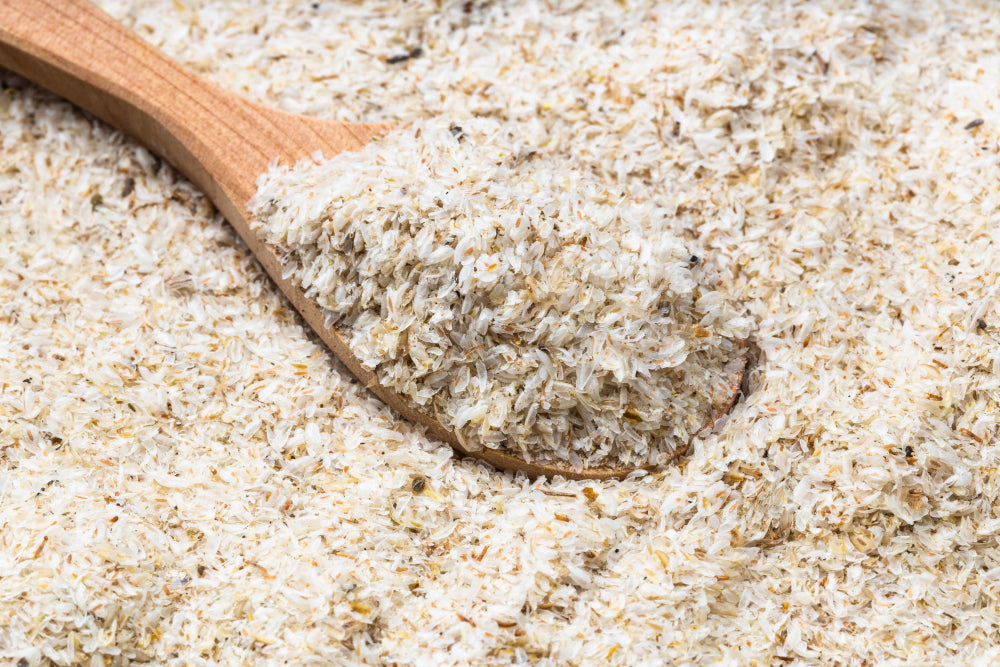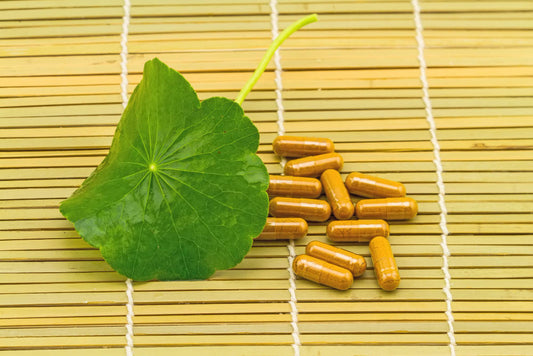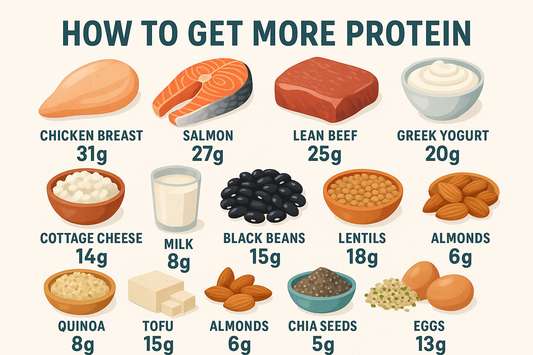Psyllium husk is a type of soluble fiber derived from the outer covering of psyllium seeds. When ground into a powder, psyllium husk provides a rich source of soluble fiber. Psyllium husk powder is commonly used to increase fiber intake, is popular in gluten-free baking, and is known for its gentler effects on the digestive system compared to other laxatives.
What is Psyllium Husk?
Psyllium husk is a type of soluble fiber derived from the husks of psyllium seeds of the Asian Plantago plant genus. This natural, non-fermented gel-forming fiber has been used for centuries to promote digestive health and support healthy blood sugar levels. When ground into a powder, psyllium husk provides a rich source of soluble fiber, which absorbs water to slow down digestion and the absorption of nutrients in the digestive system. This unique property makes psyllium husk an excellent addition to a high fiber diet, aiding in various health benefits.
What does psyllium do for the body?
Psilium acts in bulk as laxatives. It retains water for a good fit and makes stools more comfortable. Increasing fiber intake is crucial for overall health, as it supports digestive health, aids in weight management, and may reduce the risk of chronic conditions.
Psyllium husk benefits
The psyllium husk has a number of health benefits including the following: psyllium is resistant, and gut bacteria can also ferment psyllium. Psyllium fiber has been shown to significantly reduce body weight, BMI, and waist circumference, aiding in weight loss among overweight and obese individuals.
Clinically Proven Health Benefits

Psyllium husk has been clinically proven to offer numerous health benefits, making it a valuable addition to your daily routine. Some of the key benefits include:
- Improving Glycemic Control: Psyllium husk helps manage blood sugar levels, particularly in patients with metabolic syndrome and type 2 diabetes.
- Lowering Cholesterol: It effectively reduces LDL and total cholesterol levels in individuals with hyperlipidemia and those on statin therapy.
- Decreasing Blood Pressure: Regular intake of psyllium husk can help lower blood pressure in people with hypertension.
- Enhancing Digestive Health: Psyllium husk increases stool output, softens hard stools in cases of chronic constipation, and alleviates symptoms of irritable bowel syndrome (IBS).
- Supporting Weight Loss: For those struggling with weight management, psyllium husk can aid in healthy weight loss by promoting a feeling of fullness and reducing overall calorie intake.
Psyllium husk may help glucose control
Furthermore, psyllium husks help to reduce diabetes risk. Fiber supplements, including psyllium husk, play a crucial role in managing high blood pressure and sugar levels.
Does psyllium husk help with weight loss?
It’s possible. Dietary fiber is known to make you feel full longer and will also decrease appetite and calorie consumption. It helps with frequent bowel movements allowing weight loss and management. I mean, is Ozempic really the best drug? Psyllium husks may help with weight-loss, but not at the rate the drugs might do it,” says Zumpano. They work differently within cellular processes. Psyllium supplements, in particular, can aid in weight management by promoting a feeling of fullness and supporting digestive health.
Meta-Analysis Findings
A comprehensive meta-analysis of six randomized, controlled clinical studies has highlighted the significant impact of psyllium husk supplementation on various health markers. The findings revealed that psyllium husk supplementation led to statistically significant reductions in body weight, BMI, and waist circumference among overweight and obese participants. Additionally, the meta-analysis showed improvements in glycemic control, reductions in LDL and total cholesterol levels, and decreased blood pressure in patients with metabolic syndrome and type 2 diabetes. These results underscore the effectiveness of psyllium husk as a beneficial supplement for overall health.
Study Characteristics and Methods
The meta-analysis included six randomized, controlled clinical studies that evaluated the effects of psyllium husk supplementation on body weight, BMI, and waist circumference in overweight and obese participants. Conducted across four different countries, these studies encompassed a total of 354 participants, with a mean age ranging from 35 to 58 years and a mean BMI ranging from 28.7 to 33.9 kg/m². The studies utilized a range of psyllium husk dosages, from 7 to 15 g/day, and the duration of supplementation varied from 2 to 12 months. This diverse and comprehensive approach provided robust data on the benefits of psyllium husk.
Psyllium Husk Side Effects
Psilocytic husks can cause the same symptoms as any fiber in large doses. The possibility of side effects is to carefully monitor the fiber content and increase consumption slowly with time to reduce side effects. Before using any psyllium husk, always consult the GP. Taking psyllium supplements can support heart health, help with weight management, and improve overall digestion, but it is crucial to consult healthcare professionals, especially for individuals with specific health conditions.
Dosage and Administration
When it comes to taking psyllium husk, the recommended dosage is between 7 to 14 g/day, divided into doses taken just before meals. It’s advisable to start with a smaller dose and gradually increase it as needed and as tolerated. Psyllium husk can be consumed in powder or capsule form. If opting for the powder, it’s important to mix it with 250-500ml of water to prevent choking and ensure proper hydration. As with any supplement, it’s crucial to consult with a healthcare professional before starting psyllium husk, especially if you have underlying health conditions or are on medication. This careful approach will help you maximize the benefits while minimizing any potential psyllium husk side effects.
Psyllium husk may aid weight loss
Feeling of hunger following a meal is common during diets but can completely destroy well-designed programmes within minutes. Whilst the long duration of a positive energy balance (sustained eating less calories than the body needs) is crucial to weight loss, the high fibre content of the psyllium husk could become an invaluable tool for you in your weight loss training program for significant weight loss or gain.
Health benefits of psyllium
Other published meta-analyses show that psyllium supplementation can provide additional health benefits to patients. Increasing fiber intake is crucial for overall health, as it supports digestive health, aids in weight management, and may reduce the risk of chronic conditions.
Effect of psyllium on body weight
In five of the six Clinical Studies, the mean weight decreased in psyllium compared to controls. The overall mean effects were statistically significantly significant. The results were consistent among studies and the overlap between the CI’s did not show interstudy heterogeneity. Phyllium based fibre is an effective weight-management method for overweight and obese people relative to other types of control. Psyllium fiber has been shown to significantly reduce body weight, BMI, and waist circumference, aiding in weight loss when consumed just before meals.
Effect of psyllium on waist circumference
A study comparing the psilium fiber effect to positive control. The total mean effect is statistically significant in all aspects of the model. Psyllium fiber has been shown to significantly reduce waist circumference, demonstrating its potential benefits for managing obesity-related conditions.
Is it good to take psyllium husk every day?
Is psyllium used daily? Yeah! Because psyllium is mainly an animal food the substance is easily absorbed into food. Keeping how much psyllium husk out of the medicine may cause harm. Fiber supplements, including psyllium husk, offer numerous health benefits such as improved digestion and heart health, making them ideal for daily use.
What are psyllium husks good for?
It increases your stool mass thereby helping your digestive tract move more easily. The stools also increase the volume of water, which makes them easier to pass through. Psyllium, an emollient bulkforming laxative, is also a good choice for treating cholesterol. Psyllium husk powder, a soluble fiber derived from the outer covering of psyllium seeds, is beneficial for increasing fiber intake in healthy diet, is used in gluten-free baking, and has gentler effects on the digestive system compared to other laxatives.
What is the downside of psyllium husk?
What is the effect of using the drug? Allergy - Skin rash, itching, hives, facial swelling. Choking—chesting discomfort, breathing difficulty and nausea. When taking psyllium supplements, it is important to consult healthcare professionals, especially for individuals with specific health conditions, to avoid potential side effects.
Who should not take psyllium husk?
Tell your physician about diabetes or other conditions like a heart disease or failure or hypertension if you have one. Tell your doctor about the possibility of pregnancy. Consult healthcare professionals before taking psyllium supplements, especially if you have specific health conditions such as diabetes or gastrointestinal issues









